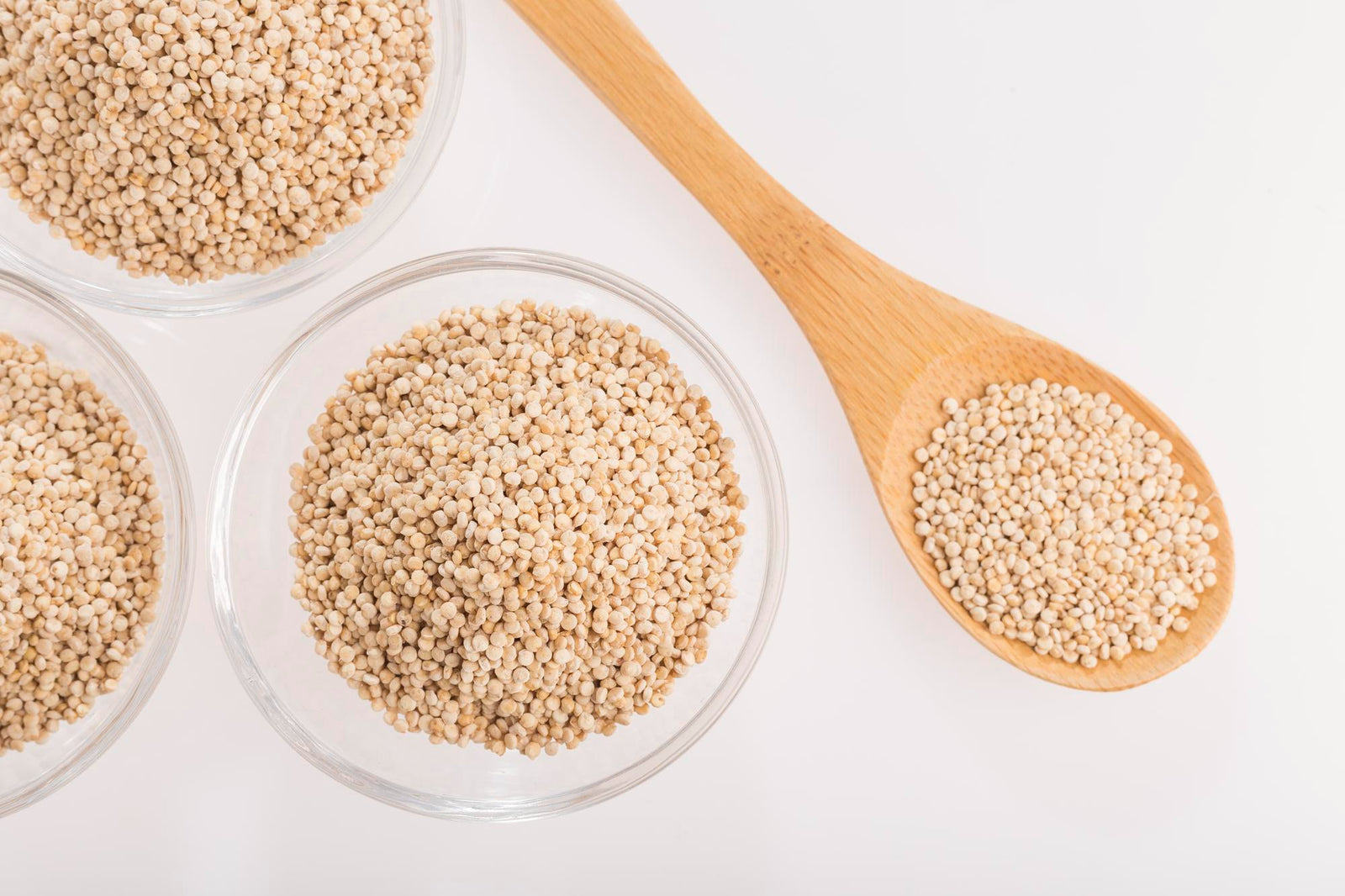
March 18, 2024 3 min read
In recent years, quinoa has soared in popularity as a beloved superfood, celebrated for its exceptional nutritional profile and versatility in the kitchen. Among the various varieties, white quinoa stands out as a particularly nutritious option, packed with essential vitamins, minerals, and protein. In this article, we delve into the nutritional facts of white quinoa, shedding light on its impressive health benefits and providing insights into why it deserves a prominent place in your diet.
One of the most notable attributes of white quinoa is its high protein content. Unlike most grains, quinoa is considered a complete protein, containing all nine essential amino acids that the body cannot produce on its own. This makes it an excellent plant-based protein source, particularly beneficial for vegetarians and vegans looking to meet their protein needs. Just one cup of cooked white quinoa provides around 8 grams of protein, making it a valuable addition to any balanced diet.
In addition to its protein content, white quinoa is also rich in dietary fiber, which plays a crucial role in supporting digestive health and promoting feelings of fullness and satiety. A single serving of cooked white quinoa contains approximately 5 grams of fiber, aiding in digestion and helping to regulate blood sugar levels. Incorporating white quinoa into your meals can contribute to overall digestive wellness and help maintain a healthy weight.
Packed with Essential Nutrients
White quinoa is a nutritional powerhouse, boasting an impressive array of vitamins and minerals essential for overall health. It is a good source of magnesium, iron, manganese, phosphorus, and zinc, all of which play vital roles in various bodily functions, including energy production, bone health, and immune function. Adding white quinoa to your diet can help ensure that you're meeting your daily requirements for these essential nutrients, supporting optimal health and vitality.

Another advantage of white quinoa is its relatively low glycemic index (GI), which measures how quickly a food raises blood sugar levels after consumption. Foods with a lower GI are digested more slowly, leading to gradual and steady increases in blood sugar levels. This can be beneficial for regulating blood sugar levels and reducing the risk of insulin resistance and type 2 diabetes. White quinoa's low GI makes it an excellent carbohydrate choice for individuals looking to control their blood sugar levels and maintain stable energy throughout the day.
Beyond its nutritional benefits, white quinoa is prized for its versatility and ease of preparation. It can be used in a wide range of dishes, from salads and soups to stir-fries and breakfast bowls. Cooking white quinoa is simple and straightforward, requiring just a few basic steps to yield fluffy and nutritious grains. Whether enjoyed as a side dish, incorporated into main courses, or used as a base for grain bowls and salads, white quinoa adds both flavor and nutritional value to any meal.

In conclusion, white quinoa stands out as a nutritional powerhouse, offering a wealth of health benefits that make it a valuable addition to any diet. From its high protein and fiber content to its abundance of essential vitamins and minerals, white quinoa provides the nutrients your body needs to thrive. Whether you're looking to boost your protein intake, support digestive health, or simply enjoy delicious and nutritious meals, white quinoa has you covered. So why not embrace the nutritional power of white quinoa and elevate your health and wellness to new heights?
Recipes:
Comments will be approved before showing up.

January 27, 2025 3 min read
Flaxseed, the tiny yet powerful superfood, is packed with nutrients that can support weight loss. From curbing hunger to stabilizing blood sugar, this guide dives into the science of how flaxseed can help you shed those extra pounds.

December 11, 2024 3 min read
Discover three quick and easy soup recipes featuring organic small red beans. From a classic vegetable soup to a creamy potato blend, these wholesome recipes are perfect for chilly days and busy weeknights. Packed with flavor and nutrition, these soups will warm your heart and soul this winter!

December 06, 2024 3 min read
This vibrant and nutritious Green Lentil Salad combines tender lentils with grilled chicken, fresh vegetables, and a zesty lemon dressing. Packed with protein, fiber, and essential vitamins, it’s the perfect healthy meal for any time of day.
© 2026 Be Still Farms- Real, Fine Organics.
Privacy | Terms | Refund Policy | Organic Certification
